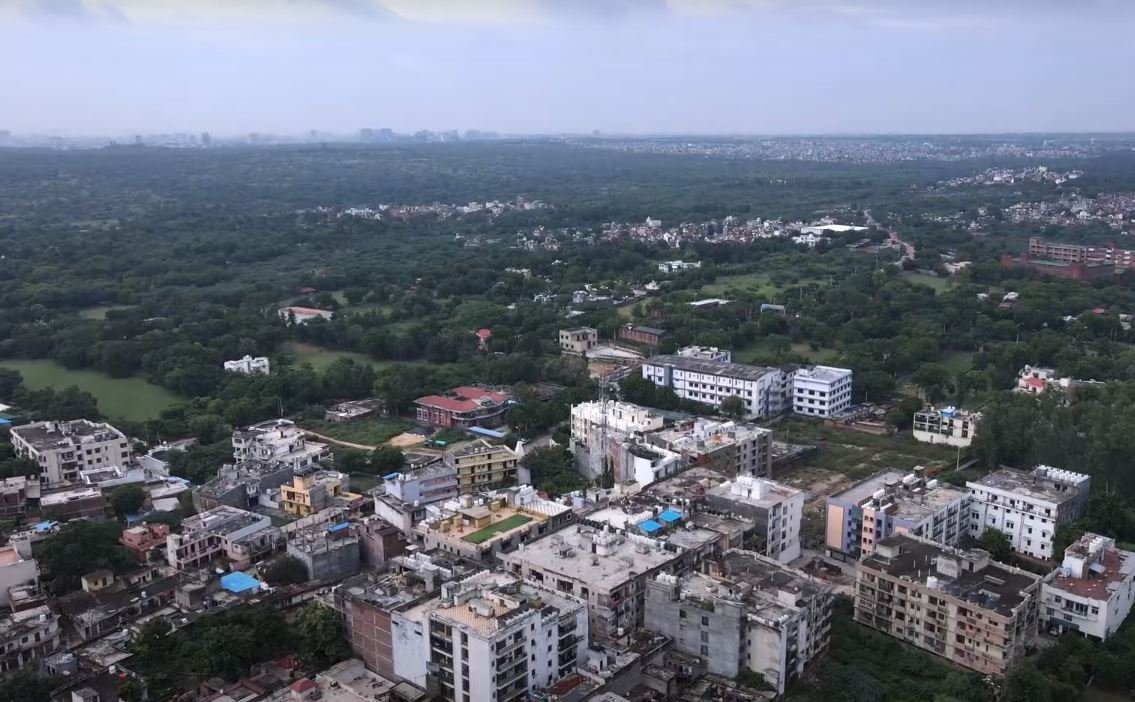5 Important tax tips for investors before investing in property in Delhi
The idea of investing in a home has been a big thing not just in Indian culture but also all over the globe. It is fair enough since owning a home takes work for everyone. For most people, a home is the most significant investment they have ever made throughout their lifetime, and the same is passed on to their family as a heritage.
Thus, one must stay updated with the tax laws and regimes while investing in a home. This article will give you nine essential tax tips to help you become more mindful as a home investor. Let’s dive into it.

Essential Tax Tips For Investors To Look Into
Purchasing real estate property is a massive investment to hold for most buyers. Everyone aspires to make money and own property that they may pass on to a generation of loved ones. Home buyers invest their hard-earned money in purchasing property and frequently find themselves in difficult situations since everyone knows that tax must be paid when selling property.
This happens because property value increases with time and development in the area. Thus, that extra add-on to the property’s value is your earned money. And just like you pay taxes on every income earned, you must also pay taxes on this appreciation in the value of your property. So be aware that investing in a house may also compel the buyer to pay tax. As a result, several considerations must be made while purchasing a property.
- Sale Consideration In Cash
- Stamp Duty Rules
- Proper Documentation
- Ready Reckoner Rates
- Understand Guideline Value
Did You Know About Sale Consideration In Cash
When purchasing a home, an investor puts a lot at stake. As an investor, you must remember that there are certain limitations to accepting or paying cash on the sale or purchase of the immovable property. If any person gets or pays cash of Rs. 20,000/- or more as an advance or as a sale consideration on the sale of immovable property, there will be better things to do. Why so? Because a penalty equal to the cash accepted on the purchase will be imposed per the law. These limitations are fundamental to keep an account of.
Know Everything About Stamp Duty
The transfer of assets or property calls for a legal documentation process. This involves stamp duty. It is a type of tax levied by the government on legal papers such as the purchase of the property. It is computed on the higher consideration value or the circular rates of the property applicable in the region.
According to the official website of the Delhi Government, the stamp duty rate that is payable at the time of registration of the property is 6% for males and 4% for females if obtained by way of:
- sale deed
- conveyance deed
- gift deed
Thus, it is essential to understand this process well, as some states provide a discount on stamp duty. Moreover, the fees differ from one state to the next. As an investor, you must know whether your state provides discounted charges for property registration in a woman’s name.
Never Neglect Through Documentation Process
There are many factors to consider while choosing your new home. These include location, size, style, layout, price, and more. We’ll take you through these areas to help you find your dream 3BHK flat.
Let us know where you live to understand better what 3BHK flats are available in your area. You can search real estate websites or contact us, talk to your building’s property management office, or speak to your local real estate agent. Also, check out your local community newspaper to find out what listings are currently available in your area.
Stay Ahead By Knowing The Ready-Reckoner Rates
As an investor or home buyer, avoid getting tricked by skyscraping prices. It is essential to understand that functionalities add value to a home. However, keeping yourself updated regarding the circle rate of the property you buy is more important.
The circle rate is the minimum price per square foot for land or property. It is set for a particular area at which transactions must be registered. You can read many more articles specially dedicated to circle rates by searching “Guideline Values in Delhi“ on google. Moreover, the Circle Rates are also referred to as “Ready-Reckoner Rates” in some places. Do not get confused since this is another term used to explain this.
Purchase Of Property Less Than Guideline Value
As discussed above, being aware of the Guideline Values or Circle Rates is crucial. If a buyer purchases a property for less than the guideline value, it is considered a gain. Thus tax must be paid for the same. The difference is taxed in the investor’s income valuation under the head “income from other sources”. This law is mentioned under section 56(2)(x).
As per the law, a 10% or Rs.50,000/- relaxation is granted, keeping in mind whichever is greater. This means that if you buy a house for one crore, but the guideline value is 1.1 crore, nothing would be added to the buyer’s income.
A Property In Delhi Could Be The Best Thing
If you are an investor looking for the perfect home in Delhi for your specific needs, familiarize yourself with these tax rules. Remember to do quality background research regarding the best property available in Delhi.
In case you need assistance, CSRealty will always be just a call away. Our representatives help you find the best property in Delhi to invest in. Find a home that has the potential to bring you maximum returns in the long run by getting in touch with us today!
Visit: www.csrealty.in to view apartments with pictures and details, or contact us at 844 844 9131 to get your free brochure and list of apartments.

-
First Floor 232, ParasTrade Center, Gwal Pahari
Gurugram - 844-844-9131
- info@csrealty.in
- First Floor 232, ParasTrade Center, Gwal Pahari Gurugram
- +918448449131
- info@csrealty.in
- First Floor 232, ParasTrade Center, Gwal Pahari Gurugram
- 8448449131
- info@csrealty.in
Quick Links

 Invest in property in Delhi – these are the best areas to buy
Invest in property in Delhi – these are the best areas to buy
